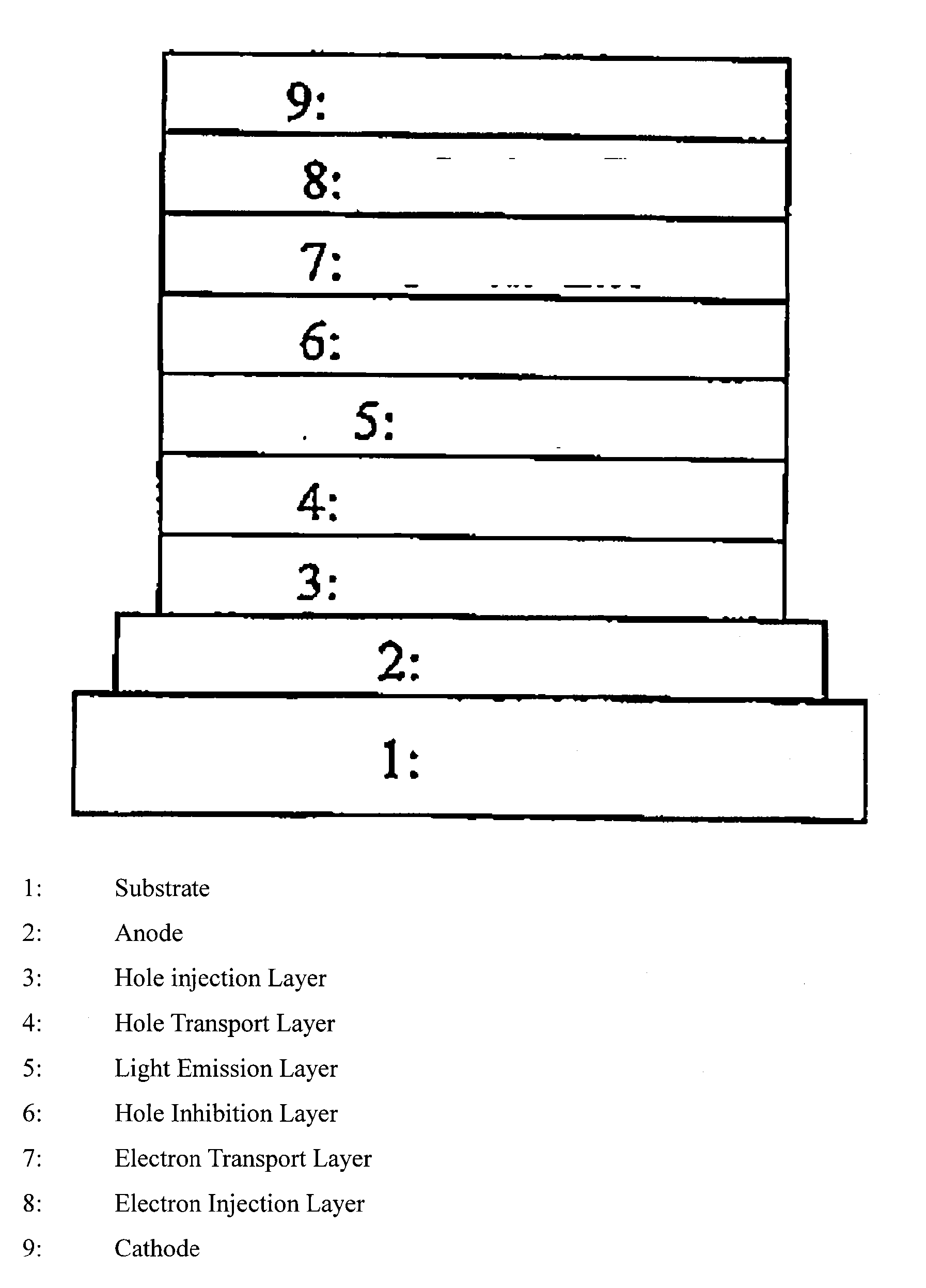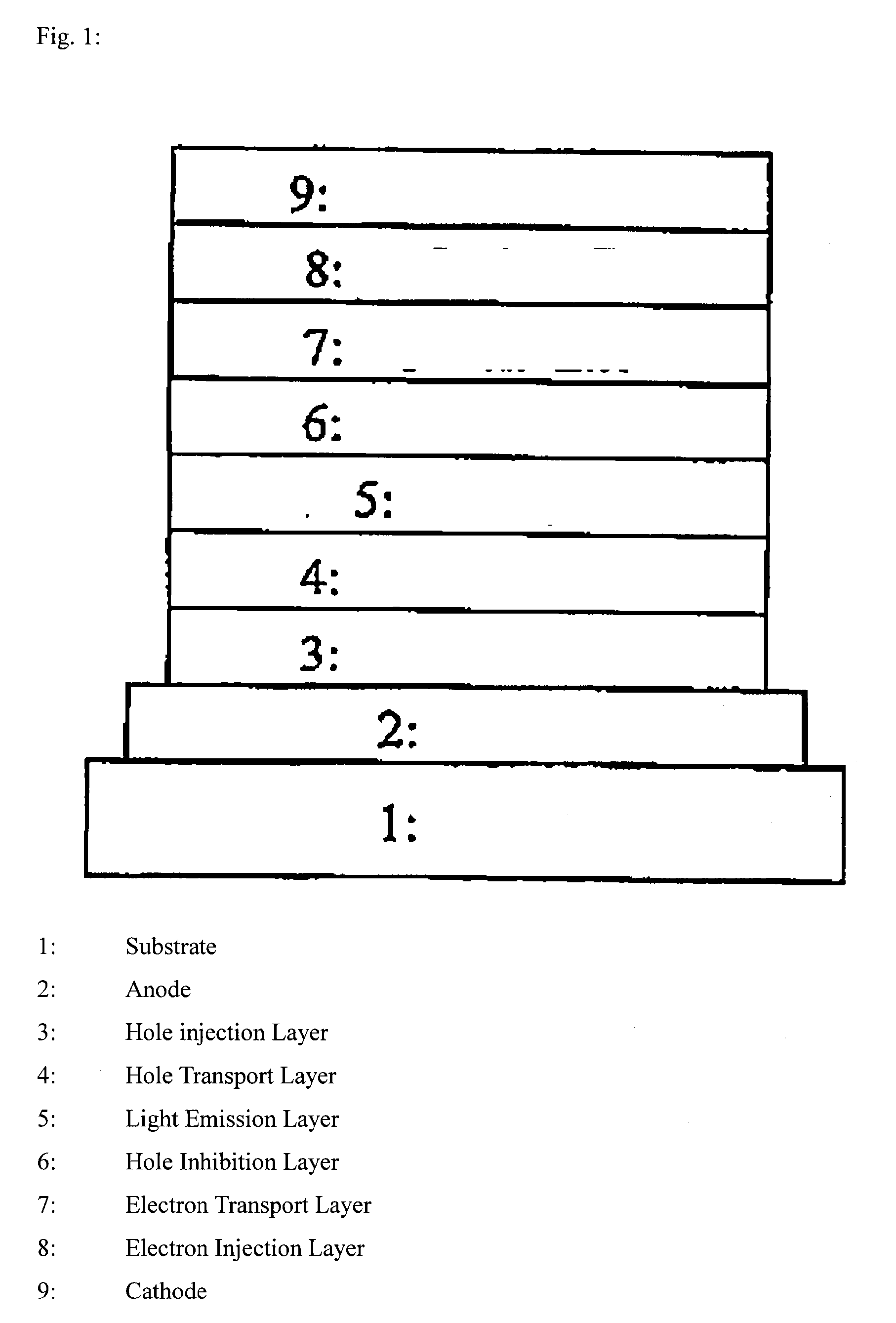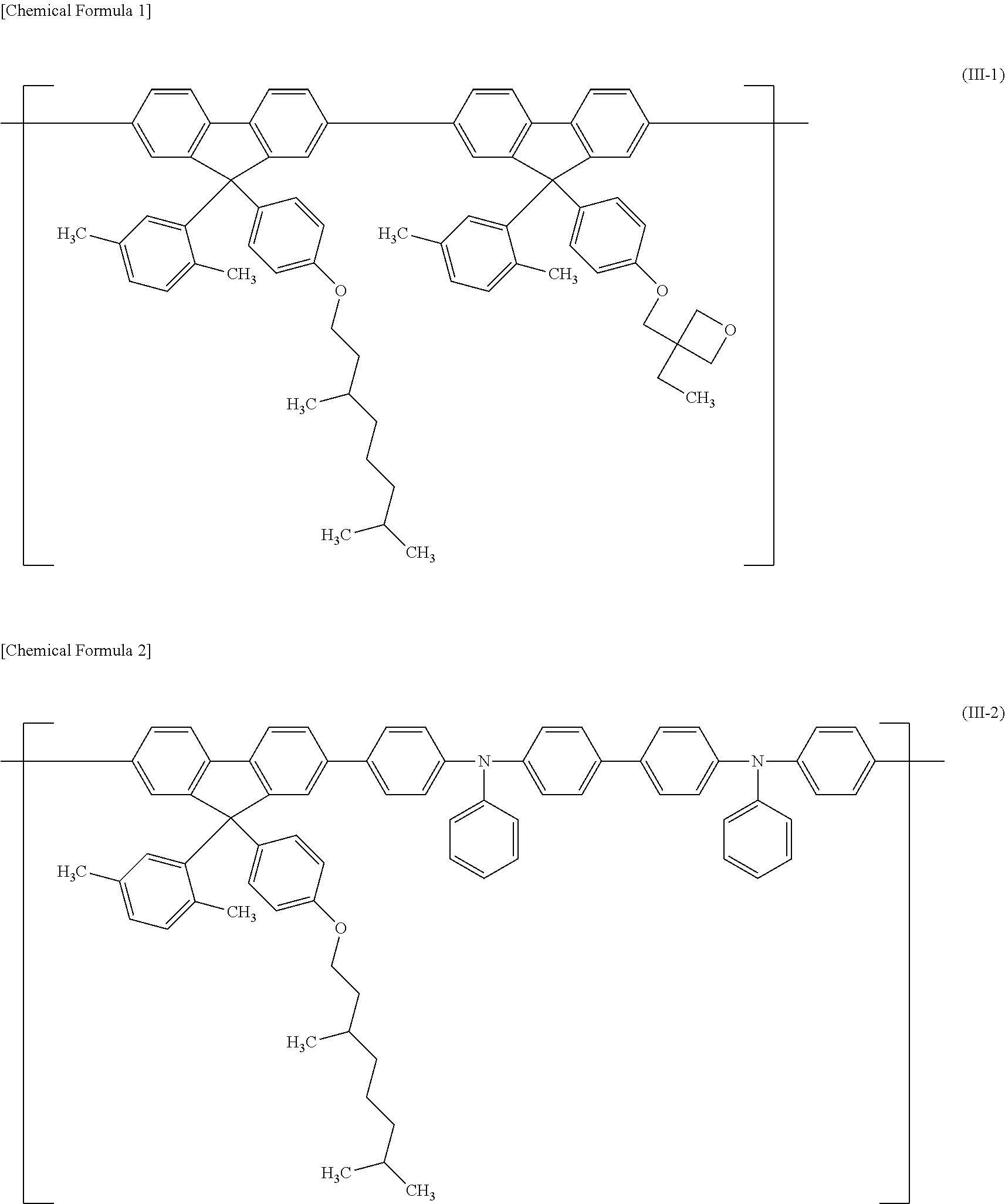Polymer compound, net-like polymer compound produced by crosslinking the polymer compound, composition for organic electroluminescence element, organic electroluminescence element, organic el display, and organic el lighting
a technology of crosslinking and polymer compound, which is applied in the direction of static indicating device, semiconductor lamp use, instruments, etc., can solve the problems of poor electrochemical stability, inferior method to vacuum evaporation method in drive stability, and insufficient solvent solubility, the effect of increasing the surface smoothness of film formation
- Summary
- Abstract
- Description
- Claims
- Application Information
AI Technical Summary
Benefits of technology
Problems solved by technology
Method used
Image
Examples
specific examples
[0127]
[0128]Above all, preferred are S-1, S-2, S-5 and S-9 from the viewpoint of the electrochemical stability; more preferred is S-5 from the viewpoint of the heat stability; and even more preferred are S-1 and S-2 from the viewpoint of the high solubility in organic solvent before crosslinking.
[1-7. Regarding n]
[0129]In the formula (I), n indicates an integer of from 0 to 3.
[0130]Preferably, n is 0 from the viewpoint that the polymer compound may have increased solubility in organic solvent and may have increased film formability. Also preferably, n is from 1 to 3 from the viewpoint that the polymer compound may have increased hole transport capability.
[1-8. Molecular Weight]
[0131]The weight-average molecular weigh (Mw) of the polymer compound (i) of the invention is generally at most 3,000,000, preferably at most 1,000,000, more preferably at most 500,0000, and is generally at least 1,000, preferably at least 2,500, even more preferably at least 5,000.
[0132]The number-average mol...
examples
[0424]The invention is described more concretely with reference to the following Examples. However, the invention is not limited to the following Examples, and the invention can be changed and modified in any desired manner not overstepping the sprit and the scope thereof. Unless otherwise specifically indicated, in the following description, dba means dibenzylideneacetone, tBu means a t-butyl group, THF means tetrahydrofuran, Me means a methyl group, Et means an ethyl group, iPr means an i-propyl group, Ph means a phenyl group, Ac means an acetyl group, DMSO means dimethyl sulfoxide, TBAB means tetrabutylammonium bromide, DME means dimethoxyethane, Tf2O means trifluoromethanesulfonic acid anhydride, DMF means dimethylformamide, dppf means 1,1′-diphenylphosphinoferrocene, NBS means N-bromosuccinimide.
production examples
[0425]Production Examples for the polymer compound of the invention are shown below.
[Production of Monomer]
PUM
 Login to View More
Login to View More Abstract
Description
Claims
Application Information
 Login to View More
Login to View More - R&D
- Intellectual Property
- Life Sciences
- Materials
- Tech Scout
- Unparalleled Data Quality
- Higher Quality Content
- 60% Fewer Hallucinations
Browse by: Latest US Patents, China's latest patents, Technical Efficacy Thesaurus, Application Domain, Technology Topic, Popular Technical Reports.
© 2025 PatSnap. All rights reserved.Legal|Privacy policy|Modern Slavery Act Transparency Statement|Sitemap|About US| Contact US: help@patsnap.com



